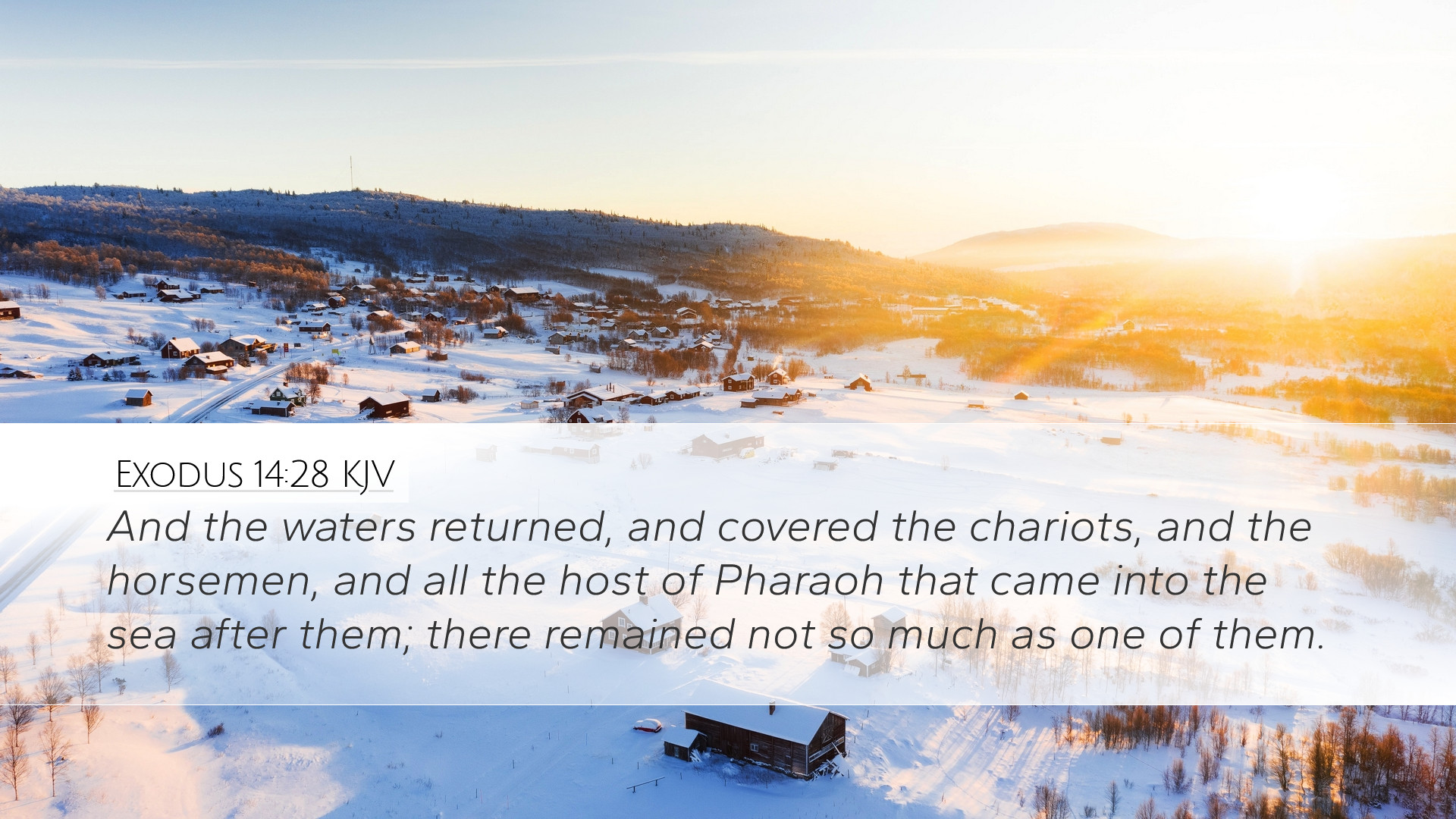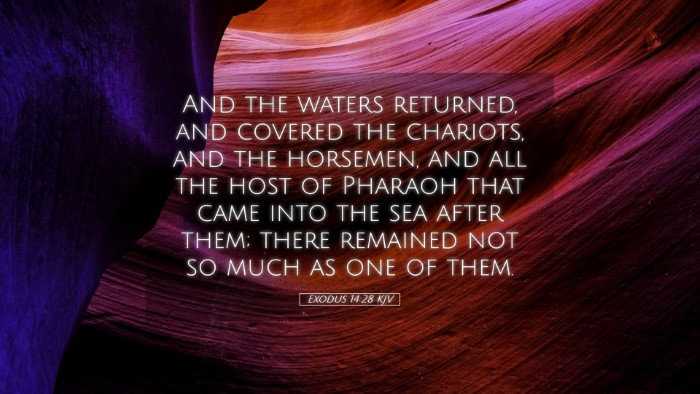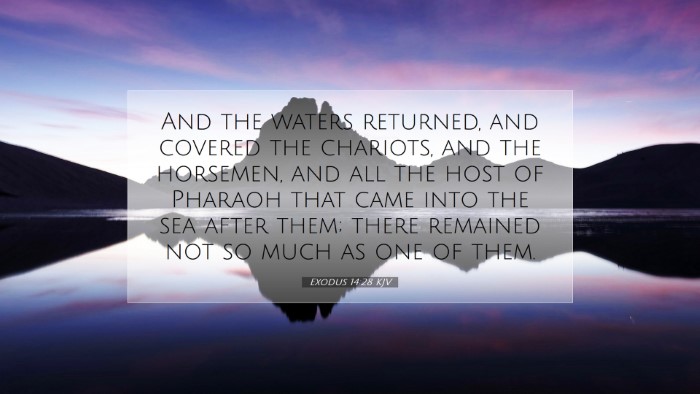Exodus 14:28 - Commentary
Exodus 14:28 states: "And the waters returned, and covered the chariots, and the horsemen, and all the host of Pharaoh that came into the sea after them; there remained not so much as one of them."
Contextual Overview
This verse concludes the powerful narrative of Israel's miraculous deliverance from Egyptian bondage and the destruction of Pharaoh’s army in the Red Sea. Understanding the context is vital, as it highlights God's sovereignty, justice, and the fulfillment of His promises.
Insights from Commentators
Matthew Henry
Matthew Henry emphasizes the significance of this event as a demonstration of God's power and judgment. He underscores that the returning waters symbolize divine retribution against the oppressors of God's people. Henry points out that this miraculous act serves not only as a deliverance for Israel but also as a stark warning to those who defy God’s commandments. He remarks:
"Here we see how God shut the door of mercy upon Pharaoh's host; they had filled up the measure of their iniquity."
This interpreting text implies that God’s justice prevails and that His promises to Israel are unshakeable despite the might of their adversaries. The complete submersion of the Egyptian army is indicative of God’s ultimate authority over earthly powers.
Albert Barnes
Albert Barnes provides a theological reflection on the significance of the verse. He notes that the act of the waters returning not only fulfills God's promise to protect Israel but also signifies the end of their oppression:
"The drowning of Pharaoh’s host in the sea is a figure of the final destruction of all the enemies of God."
Barnes elaborates on the symbolism of water as both a means of salvation for Israel and a vehicle of judgment for Pharaoh’s army. He notes the contrast between the salvation of God’s people and the inevitable downfall of those who oppose Him.
Adam Clarke
Adam Clarke delves deeper into the narrative’s details, commenting on the logistics and the scope of the disaster that befell Pharaoh's army. Clarke sheds light on the military might of Egypt and the folly of pursuing Israel into the parted sea. He states:
"The chariots were a strong symbol of earthly power; however, they are utterly destroyed in an instant by God's command."
Clarke highlights that this event should humble nations that deploy their military might against God’s people. This catastrophe serves as a testament to the futility of opposing divine will. He points out that not one soldier was left remaining—this underscores the completeness of God's judgment.
Theological Implications
- God’s Sovereignty: The verse illustrates that God maintains absolute control over nature and history. The destruction of Pharaoh's army reinforces the belief in the ultimate authority of God over all nations.
- Divine Justice: The fate of the Egyptians serves as a reminder of divine judgment. Evil never goes unchecked, and God's timing in delivering justice, as portrayed in this narrative, is always perfect.
- Symbolism of Water: Water symbolizes both judgment and salvation throughout Scripture, highlighting God’s dual role as a protector and a judge.
- Faith and Deliverance: The event encourages believers to trust in God amid trials, illustrating how faith leads to deliverance, as seen with the Israelites’ miraculous crossing.
Applications for Today
This passage has profound applications for modern Christians. Here are a few points that can be beneficial for pastors, students, and theologians:
- Trust in God's Deliverance: Just as the Israelites were saved from the Egyptians, believers are reminded of God's ability to save in times of trouble.
- Reflection on Justice: It calls for a deep reflection on divine justice. Understanding that God ultimately judges nations can encourage believers to maintain faith in His sovereignty.
- Encouragement in Trials: The narrative encourages believers to stand firm against oppression, knowing that God fights on their behalf.
- Evangelism and Warning: The story serves as a warning to those who are against God, urging the church to evangelize and share the gospel as the ultimate deliverance.
Conclusion
The dramatic conclusion of Exodus 14:28 holds profound theological weight. It reveals the dynamics of God’s intervening power, His justice against evil, and the security found in Him for those who trust. As modern readers and believers reflect on this passage, it serves as both a historical event and a timeless truth about God's nature and His dealings with humanity.


